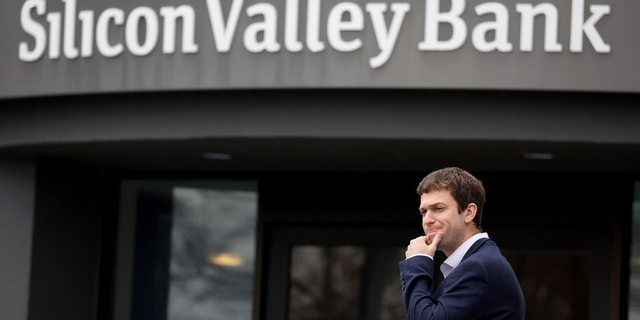Arizona Sen. Mark Kelly reportedly calls for censoring social media companies to prevent bank run; he denies
Sen. Mark Kelly, D-Ariz., asked during a meeting about the bailout of Silicon Valley Bank whether social media could be censored to prevent misinformation going out that could lead to a bank run, according to reports.
Michael Shellenberger, an independent journalist who reports on the Twitter files and has contributed to Fox News reported that Kelly asked the Federal Reserve, Treasury Department and Federal Deposit and Insurance Corp (FDIC) about censorship measures during the meeting on Sunday.
Republican House members on the call confirmed with Shellenberger’s publication, Public on Substack, that a Democratic senator asked about censoring social media companies, including Rep. Thomas Massie, R-KY, though Kelly’s name was not specifically noted.
HEAD OF RISK ASSESSMENT AT SILICON VALLEY BANK INVESTED IN LGBTQ PROGRAMS IN MONTHS LEADING UP TO SHUTDOWN
“Just got off a Zoom meeting with Fed, Treasury, FDIC, House and Senate,” Massie tweeted on Sunday. “A Democrat Senator essentially asked whether there was a program in place to censor information on social media that could lead to a run on the banks.”
After Shellenberger’s piece went out on Monday, Massie retweeted the story, saying, “His name.”

Rep. Dan Bishop, R-N.C., confirmed with the Public that it was Kelly who asked about the censorship.
BIDEN DEFENDS US BANKING SYSTEM AFTER SILICON VALLEY BANK’S HISTORIC COLLAPSE
Like Massie, Bishop retweeted Shellenberger’s post calling Kelly out.
Kelly’s camp denied the claim Monday evening and said Sen. Kelly asked about foreign adversaries potentially trying to take advantage of the situation by spreading misinformation.
SILICON VALLEY BAN COLLAPSE: KEVIN MCCARTHY SAYS LARGER BANK ACQUIREMENT MAY BE ‘BEST OPTION’ TO COLL MARKETS
The call on Sunday pertained to the collapse of Silicon Valley Bank and the sudden need for a plan to deal with the fallout.
Biden officials have insisted they do not plan to bail out SVB’s investors and that taxpayers will not pay to reimburse bank customers.
The bank was shut down by regulators following a rush of investors withdrawing funds, resulting in the largest U.S. bank failure since the 2008 financial crisis.
Read the full article Here


